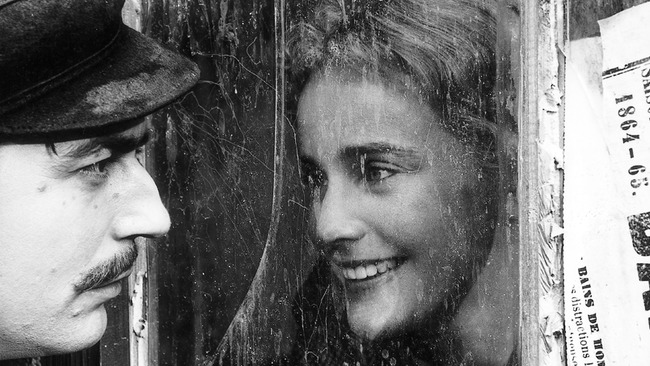Gervaise: True Grit

Director René Clément had conveyed the darker aspects of human nature in 1952’s heartbreaking Forbidden Games, which became an international, award-winning hit despite the rawness and melancholy of its antiwar message. The bitter irony and willingness to grapple with the grittier side of life that informed that film were even more pronounced in Gervaise, his 1956 adaptation of Émile Zola’s L’assommoir—commonly referred to in English as The Dram Shop, though that’s not a strict translation of the colloquial, arcane title, a nineteenth-century term for a cheap liquor shop derived from the verb assommer, “to bludgeon or render senseless.”
Such an expression feels wholly appropriate for the uncompromising experience that is Gervaise, which, while not impeccably faithful to its source, is widely considered to be one of the most accurate film representations of Zola’s writing and sensibility. Though there have been nine film versions of L’assommoir (the first as early as 1902, with Ferdinand Zecca’s Les victimes de l’alcoolisme), Gervaise remains the most acclaimed. Perhaps this is because Clément and the prolific, proudly left-wing screenwriting team of Jean Aurenche and Pierre Bost (La symphonie pastorale) were the perfect match for Zola’s brand of social realism and his unerring attention to the struggles of the working class. Winnowing the book down from approximately five hundred pages, Aurenche and Bost still manage to capture a sense of epic struggle in the story of washerwoman Gervaise (Austrian Maria Schell, winner of best actress at the Venice Film Festival for her role), who is determined to run a laundry business of her own in an impoverished quartier of Paris in 1877.
Gervaise’s desperate efforts to establish financial independence and a presence in the neighborhood are met with enormous setbacks, beginning with a rooftop accident sustained by her steeplejack husband, Coupeau (François Périer), which necessitates expensive doctor visits and leads to his increasingly crippling alcoholism. Clément depicts her fragile existence in an accumulation of impressively mounted scenes, from a violent, sudsy fight with her laundress nemesis Virginie (Suzy Delair), to a tense birthday celebration disrupted by Coupeau’s tipsy boisterousness, to his terrifying final, DTs-fueled explosion. Clément refuses to soften the brutality or consequence, right up through the devastating conclusion, when his focus shifts to Gervaise’s young daughter, Nana.
Here, at the end of the film, Clément reaffirms, in the briefest but most powerful of moments, not only his gift for eloquently directing child actors, as so memorably illustrated in Forbidden Games, but also that film’s fatalistic view that children bear the failures and mistakes of their parents’ world. And by ending on the image of Nana scampering freely, without supervision, through the Parisian streets, attracting neighborhood boys with ribbons in her hair, Clément, Aurenche, and Bost remind us that the little girl—who can’t help but recall Games’s angelic yet corrupted Brigitte Fossey—will grow up to be one of Zola’s most memorable characters, the prostitute protagonist of the 1880 novel Nana.




